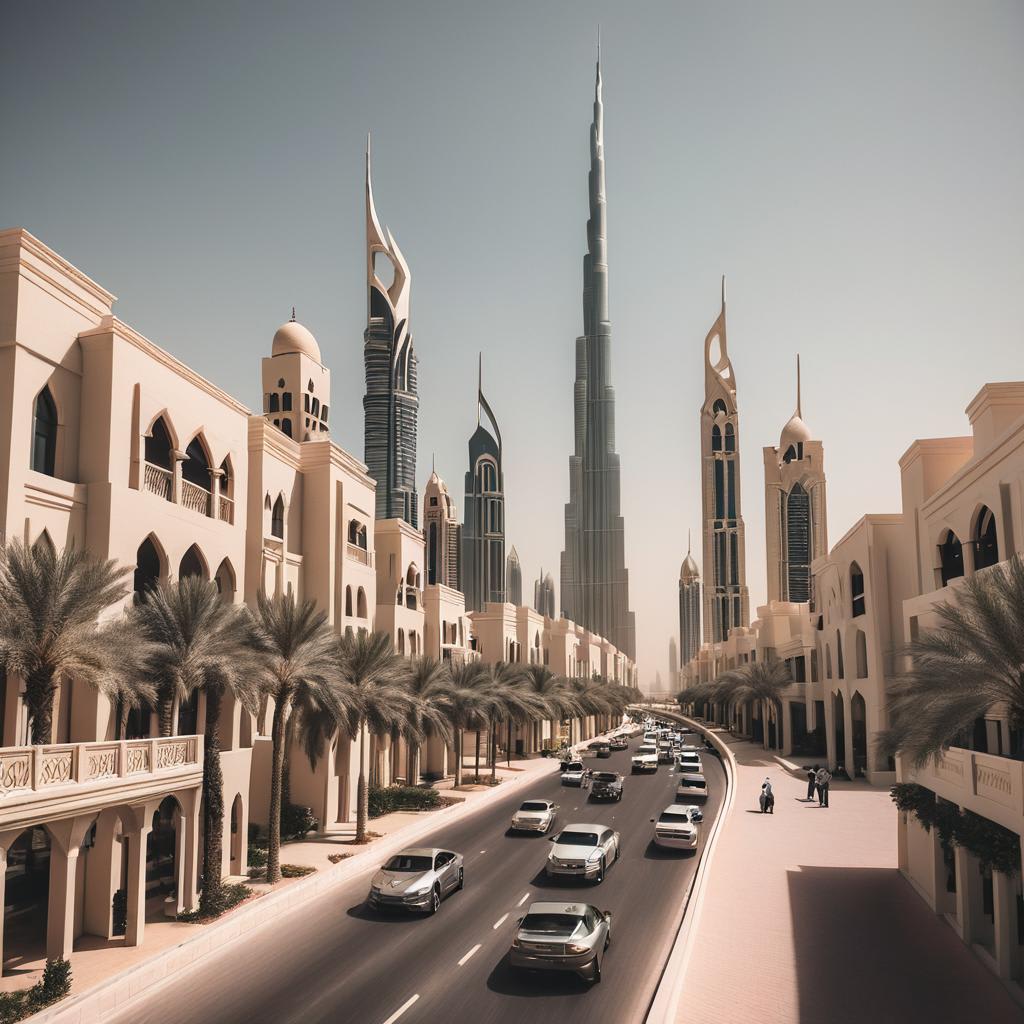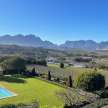Reasons why DUBAI might be becoming a WORSE investment
Going into all the details on why Dubai is going downhill

Dubai's journey from a quiet fishing village to a bustling metropolis brimming with skyscrapers is a tale of ambition and uncertainty. It all began in 1966 when a visionary embarked on transforming Dubai with the wealth generated from oil. This transformation attracted investors and expatriates, sparking a rapid influx of development that continues to define the city today. From indoor ski resorts and outdoor water parks to drone-managed weather and floating tennis courts, Dubai has spared no expense in creating a city of superlatives. Yet, beneath its glittering facade lie questions about its long-term sustainability and resilience.
Built on shifting desert sands where temperatures can soar above 115°F, Dubai faces unique challenges that raise doubts about its future. Could its ambitious development projects be a cautionary tale waiting to unfold? The answer is nuanced and uncertain, particularly when examining one of its most ambitious ventures: the artificial islands.
Dubai's artificial islands, constructed using dredged sand from the seabed, were envisioned as exclusive havens for luxury resorts and residential homes. Among these are the Palm Islands—Palm Jumeirah, Palm Jebel Ali, and Palm Deira—each offering a lifestyle akin to the Hollywood Hills. While Palm Jumeirah has flourished with bustling businesses and residences, Palm Jebel Ali and Palm Deira face challenges and uncertainty in their development.
Another grand project, "The World," an archipelago of 300 small islands shaped like a world map, and "The Universe," another set resembling constellations, have encountered significant challenges. Initiated in 2000, these projects aimed to create luxurious retreats amidst the waters of the Arabian Gulf. However, issues such as sinking islands, economic downturns post-2008, and environmental impacts have hampered their progress.
Palm Jumeirah, the most developed of the Palm Islands, is experiencing gradual sinking—approximately 5 mm per year—due to inadequate sand foundation support. Despite efforts with wave breakers, erosion remains a persistent issue. The environmental impact has been severe, affecting marine life and local ecosystems. Dubai's extensive use of resources, including desalination plants for water and vast amounts of sand for construction, has strained its ecological balance.
One notable development within "The World" archipelago is the Ana World Islands Dubai Resort, which opened in 2021. Located in the South America region of the islands, it offers a secluded retreat with luxurious accommodations like beach villas and poolside retreats. Despite its allure, questions about sustainability and long-term viability persist.
The Heart of Europe project, also part of "The World" archipelago, aims to replicate European destinations with luxurious hotels, private mansions, and floating villas. This ambitious venture continues to seek investors amid ongoing challenges.
Investing in Dubai's island projects remains a tempting yet uncertain prospect, with properties ranging from private islands to exclusive resorts commanding substantial prices. While the appeal of luxury living and investment opportunities persists, concerns about sustainability and environmental impacts loom large.
In conclusion, Dubai's transformation from a humble fishing village to a global metropolis stands as a testament to human ambition and innovation. However, as it navigates climate challenges, sustainability issues, and economic shifts, only time will reveal whether Dubai's bold aspirations will stand the test of time or serve as cautionary tales for future developments worldwide.
Dubai's journey from a modest beginning to a thriving global hub is a narrative woven with the threads of ambition and adaptability. In the mid-20th century, Dubai was primarily a quiet trading and fishing port, its economy centered around pearling and small-scale commerce. This all changed in 1966 when oil was discovered in the region, propelling Dubai into an era of unprecedented growth and transformation.
The visionary leadership of Sheikh Rashid bin Saeed Al Maktoum, who became the Ruler of Dubai in 1958, played a pivotal role in shaping the city's destiny. Recognizing the potential of oil revenue, Sheikh Rashid embarked on ambitious infrastructure projects that laid the groundwork for Dubai's future development. These included expanding the port facilities, building roads, and investing in education and healthcare.
The influx of oil wealth enabled Dubai to diversify its economy and attract foreign investment. The establishment of free trade zones and business-friendly policies encouraged multinational corporations to set up regional headquarters in the city. This, in turn, spurred population growth as expatriates from around the world flocked to Dubai in search of employment opportunities and a better quality of life.
Central to Dubai's transformation was its ambitious urban planning initiatives. The construction of iconic landmarks such as the Burj Al Arab, the world's first seven-star hotel, and the Burj Khalifa, the tallest building in the world, catapulted Dubai onto the global stage. These architectural marvels not only symbolized Dubai's aspirations but also attracted tourists and investors alike.
Dubai's strategic location between Europe, Africa, and Asia further bolstered its role as a global trade and tourism hub. The development of state-of-the-art infrastructure, including Dubai International Airport and Jebel Ali Port, facilitated seamless connectivity and logistics, enhancing the city's attractiveness for business and leisure travelers alike.
In recent years, Dubai has diversified its economy beyond oil and gas to sectors such as tourism, real estate, finance, and technology. The city's vibrant cultural scene, with world-class shopping malls, entertainment venues, and cultural festivals, has further enhanced its appeal as a global destination.
However, Dubai's rapid development has not been without challenges and criticisms. Concerns have been raised about environmental sustainability, particularly regarding the city's high energy consumption, reliance on desalinated water, and carbon footprint. The ecological impact of large-scale construction projects, including artificial islands and reclaimed land, has also drawn scrutiny from environmentalists.
Moreover, Dubai's economic resilience has been tested by global downturns, such as the 2008 financial crisis and the COVID-19 pandemic. These crises exposed vulnerabilities in the city's real estate market and financial sector, prompting government interventions to stabilize the economy and mitigate the impact on businesses and residents.
Looking ahead, Dubai faces the dual challenge of sustaining its economic momentum while addressing environmental concerns and enhancing social inclusivity. Initiatives such as the Dubai Clean Energy Strategy 2050, which aims to make the city a global leader in clean energy and sustainable development, underscore the government's commitment to balancing growth with environmental stewardship.
In conclusion, Dubai's journey from a modest trading outpost to a global metropolis is a testament to the power of visionary leadership, strategic planning, and bold ambition. While the city has achieved remarkable success in diversifying its economy and enhancing its global stature, the path forward requires navigating complex challenges with foresight and resilience. By embracing innovation, sustainability, and inclusivity, Dubai can continue to thrive as a beacon of opportunity and progress in the 21st century
About the Creator
Enjoyed the story? Support the Creator.
Subscribe for free to receive all their stories in your feed. You could also pledge your support or give them a one-off tip, letting them know you appreciate their work.






Comments
There are no comments for this story
Be the first to respond and start the conversation.